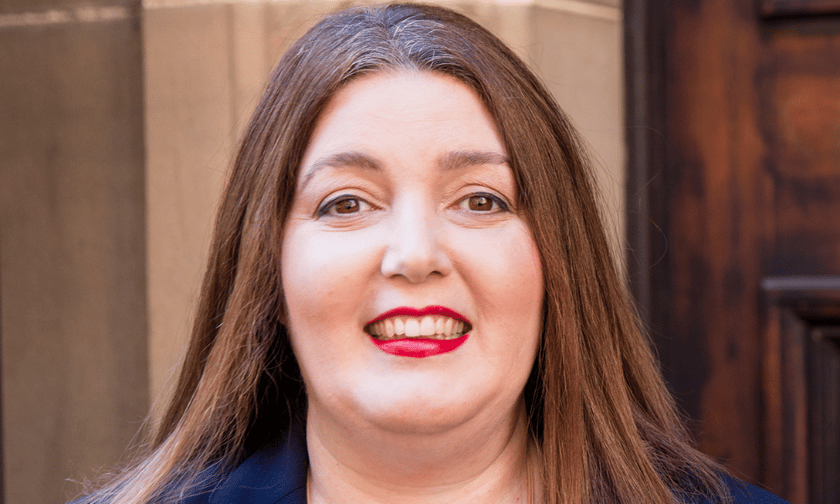

“Some confusion around the state of RG 146 remains.” said Belinda Brown (pictured above). “For swathes of financial workplaces, it very much still has its place.”
For insurance brokers, she said the “baseline level of relevant knowledge” provided by the RG 146 licensing regulation is the minimum compliance accreditation most of them still need.
Brown is head of policy and industry capability for Financial Education. The Sydney-headquartered training provider offers financial services education including technical training and licensing compliance.
While the Australian Securities and Investments Commission (ASIC) has not actually updated RG 146 since 2012, she said it’s still a requirement under the regulatory framework.
Brown said the syllabus under this regulation concerns the provision of advice in a range of specialist knowledge areas, not just insurance.
“If an insurance professional or their practice is seeking something more robust or they are looking to elevate into a more senior role, then there are pathways from initial RG 146 accreditation into qualifications such as the Certificate IV in General Insurance or Diploma of Insurance Broking,” she said.
Brown also said appetite across the financial services industry for training under RG 146 is growing. And not just for training under this regulation. Appetite for a range of upskilling is on the up.
“Insurance is one of our fastest growing segments,” she said. Brown said the payments and fintech sectors are also areas where the appetite for education is growing.
Among the different qualifications that come under RG 146, the basic qualifications a broker needs are Personal Advice and Tier 2
“Tier 2 is the classification,” said Brown. “You’ve got your classifications by level of product, so Tier 1 and Tier 2 and then you’ve got whether the advice is general or personal.”
She said this is a “complex matrix” for brokers because their work is not simply transactional.
“They are actually advising a client on whether they should take something up or not which tends to fall into the personal advice area,” said Brown.
However, if the insurance offerings are vanilla products including home and contents and travel coverages, “They just need Tier 2.”
Tier 1 qualifications come into play, she said, for insurance professionals and advisers involved in personal, accident and sickness, and life insurance.
Even though insurance brokers only require these minimum qualifications Brown has noticed the rising appetite across the insurance industry for more training and qualifications.
One area of demand is from experienced insurance professionals, she said, “wanting to refresh their credentials or even progress to a full qualifications.”
These professionals, she said, feel the need to stay up to date with regulations, “which have changed substantially in recent years.”
“Also, brokers and anyone in insurance advice generally, values competence as a personal and professional quality,” said Brown. “It’s seen as a competitive advantage to be able to say you’ve studied the latest and greatest.”
However, there are also broader drivers behind the uptick in education across the industry, including environmental and cultural changes.
“There have been a lot of commitments in industry codes around claims as there’s been an increase in the frequency and severity of weather events,” said Brown. “This is one of the biggest drivers of people wanting to use a broker now and so we’ve got insurers and brokers wanting to upskill in claims.”
She said Financial Education delivers both a certificate for general insurance and a diploma of insurance broking that covers the learning requirements under the Australian and New Zealand Institute of Insurance and Finance’s (ANZIIF’s) new claims handling framework. Brown said this is part of an eight-to-12-week program but can also come as continuing professional development (CPD) training.
The Hayne Royal Commission, which handed down a final report in 2019, and also the rise of environmental, social and governance (ESG) factors are also playing a significant role.
“The whole ESG piece has become significant for our clients,” said Brown. “They want to be seen to be investing in their people.”
She said if a firm can create an alignment between the values of its staff and its company values, “then that generally flows through to customer satisfaction.”
Brown said the changed priorities of many investors are also driving education.
“The investor community is doing due diligence on things outside of just financials now, so the whole social licence piece has become as significant as the financial viability and the regulatory compliance side,” she said.
In the middle of all this, Brown said brokers are upskilling due to this combination of regulatory and social factors.
Financial Education is the Champagne Sponsor at the upcoming Insurance Business Awards.
Are you in the insurance industry? What education or training are you interested in? Please tell us below.
